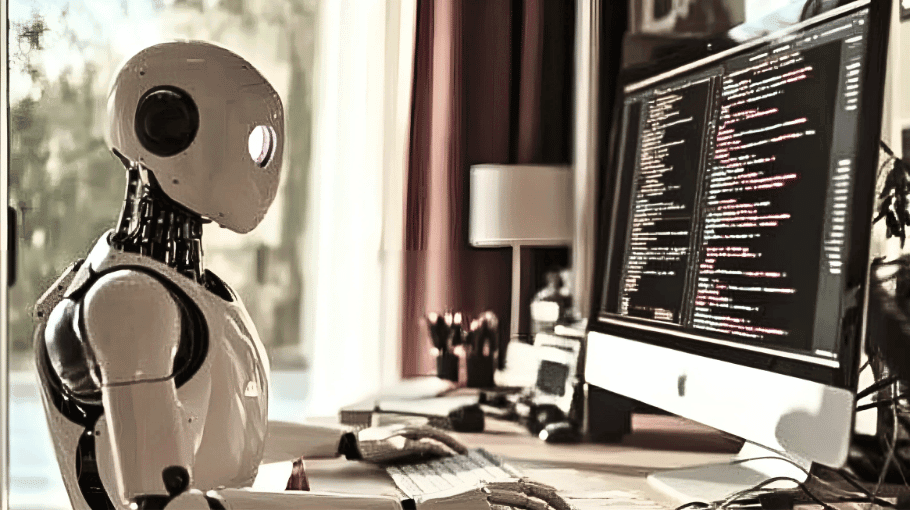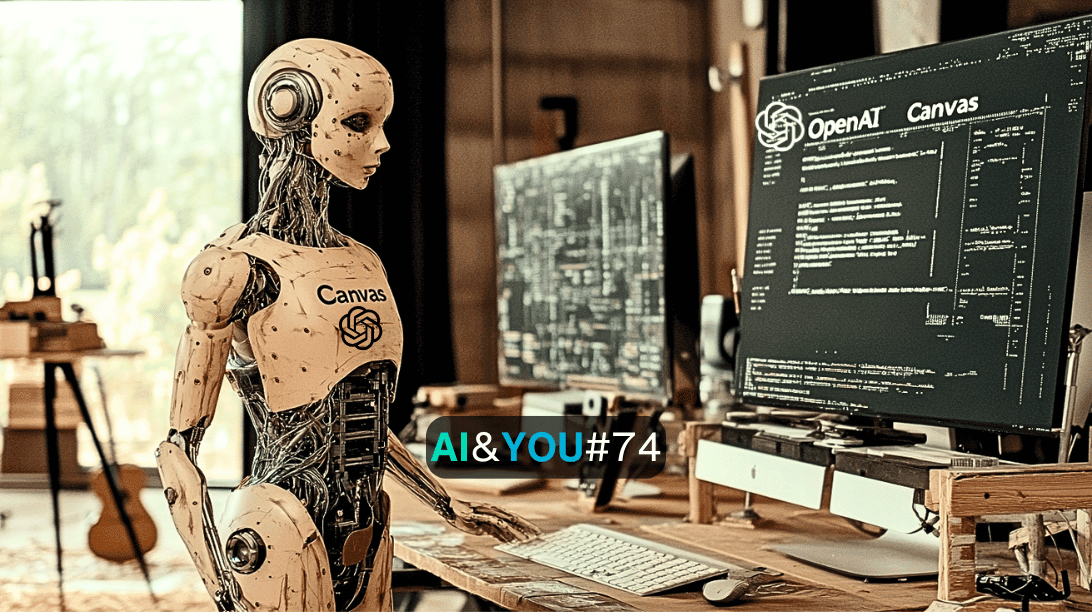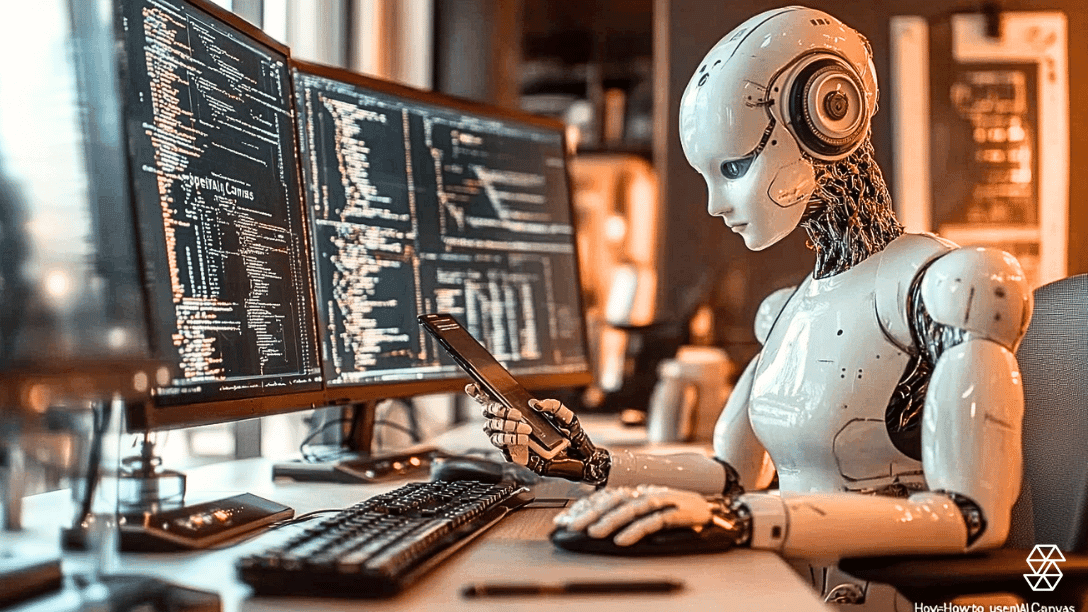Anthropic & Claude 3 Company Overview: Due Diligence for VCs and Founders
Anthropic has emerged as a major industry player since its founding in 2021. This artificial intelligence startup has garnered significant attention from investors and industry experts due to its unique approach to developing safe and beneficial AI models. Anthropic’s swift progress in the competitive AI race reflects the strength of its innovative technologies and the expertise of its founding team.
Anthropic’s potential to make a significant impact on the generative AI industry has attracted substantial investment from leading venture capital firms and strategic partners. The company has recently secured $2.75 billion in funding, enabling it to further its research and development initiatives and establish strategic collaborations with key industry players like Amazon Web Services. With this transformational technology and funding, Anthropic is well-equipped to influence the future of artificial intelligence and drive meaningful advancements across various industries.
Who Founded Anthropic? The Company’s Origin Story
Anthropic was founded by former OpenAI employees Dario Amodei and his sister Daniela Amodei. Prior to launching Anthropic, Dario served as the Vice President of Research at OpenAI, where his contributions were instrumental in the development of the renowned GPT-2 and GPT-3 neural networks. However, due to disagreements with OpenAI’s management, the Amodei siblings, along with several other specialists, made the decision to part ways with the company.
One of the primary reasons for their departure was the concern over the potential commercialization of AI technologies resulting from OpenAI’s joint projects with Microsoft in 2019. The Amodei siblings strongly believed that the priority in AI development should be the safety and security of these programs. They feared that Microsoft’s investment might lead to an overemphasis on commercialization, potentially compromising the safety and ethical considerations of the AI systems. Additionally, they were apprehensive about the possibility of these systems spiraling out of control and causing harm to society or being used for criminal purposes, without the developers having the means to prevent such misuse.
Driven by their shared vision of prioritizing AI safety, Dario and Daniela, along with a group of former OpenAI employees, founded their own startup in 2021. Initially named AI Safety Lab, the company was later rebranded as Anthropic AI. Today, the company operates under the name Anthropic PBC, reflecting its current legal status as a public benefit corporation.
The Amodei siblings’ initial plan was to utilize existing AI models from third-party developers and focus on testing their security. However, they soon realized that to truly ensure the safety of AI systems, they would need to create a powerful neural network from the ground up. This realization led to the development of their own language model, named Claude, in honor of the renowned mathematician Claude Shannon.
Here is a great interview with Dario Amodei and Dwarkesh Patel:
Anthropic’s Unique Corporate Structure
Central to Anthropic’s mission is the development of artificial intelligence that is not only highly capable but also safe and beneficial to humanity. The company recognizes that as AI models become increasingly sophisticated and powerful, it is essential to ensure that they remain aligned with human values and do not pose significant risks. To achieve this objective, Anthropic has implemented a unique corporate structure that prioritizes AI safety above all else.
One of the most notable aspects of Anthropic’s corporate structure is the establishment of the Long-Term Benefit Trust. This trust is the sole possessor of a unique class of Anthropic stock, known as “class T” shares. These shares do not pay dividends and cannot be traded, ensuring that profiting from them is impossible. However, holders of class T shares have the authority to appoint and dismiss three out of Anthropic’s five corporate directors, granting them long-term control over the company’s direction.
By placing the company under the guidance of a board that does not have vested financial interests, Anthropic aims to create a safeguard against the potential emergence of harmful AI. The board members still receive moderate financial compensation for their service, ensuring that they are incentivized to make decisions that align with the company’s mission and values. This unique corporate structure serves as a “kill switch” mechanism, allowing the board to intervene if the development of AI technologies begins to veer in a dangerous direction.

Inside Anthropic’s AI Arsenal
At the forefront of Anthropic’s AI offerings is Claude, an advanced AI model that showcases the company’s cutting-edge capabilities in natural language processing (NLP) and generation. Claude represents a significant leap forward in human-AI interaction, demonstrating remarkable proficiency in understanding context, engaging in meaningful dialogue, and completing complex tasks.
Anthropic’s AI arsenal extends beyond Claude, with the company actively developing a range of innovative technologies to push the boundaries of AI safety and transparency. Anthropic’s “AI Safety via Debate” is a novel approach that involves training AI models to engage in constructive discussions and consider multiple perspectives before reaching conclusions. This technique promotes more robust and reliable decision-making processes in AI systems. Additionally, Anthropic’s “Factored Cognition” framework aims to simplify complex AI architectures by breaking them down into more manageable and interpretable components, enhancing the transparency and controllability of AI models.An

Claude 3: Anthropic’s Flagship AI Model and Its Partnerships
Claude 3, the latest iteration of Anthropic’s flagship AI model, represents a major milestone in the company’s mission to develop safe and capable AI systems. Released in 2024, Claude 3 builds upon the successes of its predecessors while introducing significant advancements in terms of performance, scalability, and ethical alignment.
One of the key features of Claude 3 is its expanded context window, allowing the model to process and generate longer coherent responses compared to previous versions. With the ability to handle up to 200,000 words, Claude 3 can tackle more complex tasks and maintain context over extended conversations. This enhancement enables Claude 3 to provide more detailed and nuanced responses, making it suitable for a wide range of applications, from content creation to data analysis.
Claude 3 also showcases improved performance across various benchmarks, surpassing competing AI models in tasks such as natural language understanding, reasoning, and code generation. The model’s ability to excel in these areas is a testament to Anthropic’s commitment to pushing the boundaries of AI capabilities while maintaining a strong focus on safety and ethical considerations.
The Three Primary Models of Claude 3
Anthropic has developed Claude 3 as a family of models, each catering to different performance requirements and use cases. The three primary models in the Claude 3 family are:
- Claude Haiku: Designed for speed and efficiency, Claude Haiku is the most compact model in the family. It is well-suited for tasks that require fast response times while maintaining a balance between performance and cost.
Claude Sonnet: As the middle-ground model, Claude Sonnet offers a balance between speed and performance. It is ideal for handling a wide range of tasks, including data processing, quality control, and product recommendations, making it a popular choice for enterprise applications.
Claude Opus: The most powerful model in the Claude 3 family, Claude Opus delivers unparalleled performance across various benchmarks. With its advanced reasoning capabilities and domain expertise, Claude Opus is suitable for tackling complex problems and providing expert-level insights.
Anthropic’s commitment to Constitutional AI is deeply embedded in Claude 3, ensuring that the model operates within predefined ethical boundaries and aligns with human values. The company has implemented rigorous testing and monitoring processes to identify and mitigate potential biases or unwanted behaviors in the model’s outputs.
With the release of Claude 3, Anthropic has further solidified its position as a leader in the development of safe and capable AI systems. The model’s advanced capabilities, combined with its strong ethical foundation, make it a valuable tool for businesses and organizations seeking to harness the power of AI responsibly. As Anthropic continues to refine and expand the Claude 3 family, the company is poised to drive significant advancements in the field of artificial intelligence, shaping the future of human-AI interaction and unlocking new possibilities across industries.

Claude 3 and Amazon Bedrock: A Powerful Collaboration
Claude 3 Haiku has recently become generally available on Amazon Bedrock, a fully managed service that offers a selection of high-performing foundation models from leading AI companies. This collaboration brings together Anthropic’s state-of-the-art AI technology and Amazon’s robust cloud infrastructure, making it easier for enterprises to build and scale generative AI applications.
By making Claude 3 Haiku available on Amazon Bedrock, Anthropic has significantly expanded the accessibility of its transformational technology. Amazon Bedrock provides a single API that allows users to access and integrate high-performing foundation models from multiple AI providers, including Anthropic, AI21 Labs, Cohere, Meta, Mistral AI, and Stability AI. This consolidated access, combined with Amazon’s robust cloud infrastructure, empowers enterprises to build and scale generative AI applications with ease.
Claude 3 Haiku’s speed and compactness make it an ideal choice for building seamless AI experiences that closely resemble human interactions. Its near-instant responsiveness enables enterprises to deploy AI-powered solutions that can quickly process and generate human-like responses, enhancing customer engagement and streamlining various business processes. Some potential applications of Claude 3 Haiku include content moderation, inventory management optimization, accurate language translation, unstructured data summarization, and more.
Anthropic’s Funding Success
One of the key indicators of Anthropic’s success is its impressive funding rounds. The AI startup has secured substantial investments from prominent venture capital firms, highlighting the confidence investors have in Anthropic’s vision and potential.
In a recent funding round, Anthropic raised a staggering $2.75 billion, propelling the company’s valuation to new heights. This influx of capital has provided Anthropic with the resources necessary to accelerate its research and development efforts, expand its team of talented AI experts, and scale its operations to meet the growing demand for its innovative AI solutions.
Anthropic’s funding success is a testament to the company’s strong position in the competitive AI landscape. With a robust financial foundation, Anthropic is well-equipped to navigate the challenges and opportunities that lie ahead, cementing its status as one of the leading AI startups in the industry.
Beyond its financial achievements, Anthropic has garnered recognition and forged strategic partnerships with key players in the technology sector. The company’s collaboration with Amazon Web Services, for example, has opened up new opportunities for Anthropic to leverage AWS’s extensive cloud computing infrastructure and services. This partnership enables Anthropic to scale its AI models and solutions efficiently, ensuring that its cutting-edge technology is accessible to a wide range of customers and industries.

Who are Anthropic’s Competitors?
As Anthropic continues to make strides in the rapidly evolving AI industry, the company faces competition from several prominent players:
OpenAI: Founded in 2015, OpenAI is a prominent competitor known for its generative models like GPT-4 and its focus on AI research and deployment. The company offers a wide range of AI solutions and an API platform for accessing advanced models, making it a formidable rival to Anthropic. OpenAI’s strong reputation and extensive offerings in the AI market position it as a significant competitor in the field.
Mistral AI: Mistral AI, a French startup founded in 2023, has quickly emerged as a strong competitor to Anthropic by focusing on open large language models (LLMs) and technological advancements. The company’s dedication to developing open-source language models contributes to a more inclusive and collaborative AI research environment, which resonates strongly within the European Union’s tech community. Mistral AI’s flagship model, Mistral 7B, represents a remarkable advancement in generative AI, offering enhanced language understanding and the ability to process multiple languages.
Google: Google remains a significant competitor to Anthropic and OpenAI, leveraging its vast resources and expertise in AI research and development. The tech giant has created cutting-edge technologies like Google Gemini, demonstrating its strong capabilities in the field.
These competitors showcase the intense rivalry in the AI industry, with each company bringing its own strengths and innovations to the table.
Anthropic’s Expanding Market Opportunities
As Anthropic continues to make strides in the competitive AI landscape, the company is well-positioned to capture a growing share of the market across various sectors.
In an increasingly competitive AI market, companies are recognizing the importance of diversifying their AI partnerships to avoid dependence on a single provider. This trend presents a significant opportunity for Anthropic to establish itself as a vital alternative to industry leaders like OpenAI. By offering its AI technologies alongside other providers, Anthropic enables companies to have greater bargaining power when negotiating terms and prices with LLM providers.
Moreover, working with multiple LLM companies ensures that businesses can maintain uninterrupted operations in the face of potential outages or strategic shifts by any single provider. As a result, even if OpenAI were to dominate the AI market, Anthropic would still have a strong position as a secondary option, much like Google Cloud’s role in a multi-cloud world dominated by AWS. This corporate optionality makes Anthropic an attractive partner for companies seeking to diversify their AI investments and reduce their reliance on a single provider.
Tailoring AI Solutions for B2B Use Cases
Anthropic’s flagship chatbot, Claude, stands out from competitors like ChatGPT in performance, making it an ideal fit for many B2B use cases. With a 100K token context window, Claude is particularly well-suited for enterprise applications that require processing large amounts of text and information, such as legal document review, medical document review, and financial document review.
Another key advantage of Claude is its focus on steerability and predictable, non-harmful results. This prescriptive approach ensures that Claude can provide consistent answers with fewer instances of hallucinations, making it a reliable choice for professional use cases such as basic service and support tasks that involve retrieving and synthesizing information from a knowledge base. While this trade-off may make Claude less suitable for all-purpose consumer applications or generating novel information like code, it positions the chatbot as a valuable tool for businesses seeking a dependable and tailored AI solution.
As Anthropic continues to expand its market presence and refine its AI technologies, the company is well-equipped to address the growing demand for specialized AI solutions across various industries. By offering a powerful alternative to industry leaders and focusing on the unique needs of B2B customers, Anthropic is poised to capture a huge share of the enterprise AI market in the years to come.
Anthropic’s Future Impact
As Anthropic continues to push the boundaries of AI technology, the company is well-positioned to make a profound impact on the AI landscape and society as a whole. With its commitment to developing safe and beneficial AI models, Anthropic is at the forefront of shaping the future of artificial intelligence.
Anthropic’s transformational technology has the potential to revolutionize a wide range of industries. The company’s advanced AI models, such as Claude 3, can be applied to various use cases, enabling businesses and organizations to streamline processes, enhance decision-making, and unlock new insights from vast amounts of data. As Anthropic continues to refine its AI offerings and expand its reach, the startup is poised to drive significant efficiency gains, improve customer experiences, and foster innovation across sectors.
Looking ahead, Anthropic’s future impact will extend beyond the immediate applications of its AI technology. The company’s research and development efforts are likely to contribute to the broader advancement of artificial intelligence, pushing the boundaries of what is possible with AI systems. Anthropic’s ongoing commitment to AI alignment and safety will play a crucial role in shaping the ethical framework surrounding AI development, ensuring that the benefits of this transformational technology are realized in a responsible and beneficial manner.
As Anthropic continues to grow and evolve, the company’s influence on the AI landscape will only expand. With its strong financial backing, strategic partnerships, and talented team of AI experts, Anthropic is well-positioned to tackle the challenges and opportunities that lie ahead.






